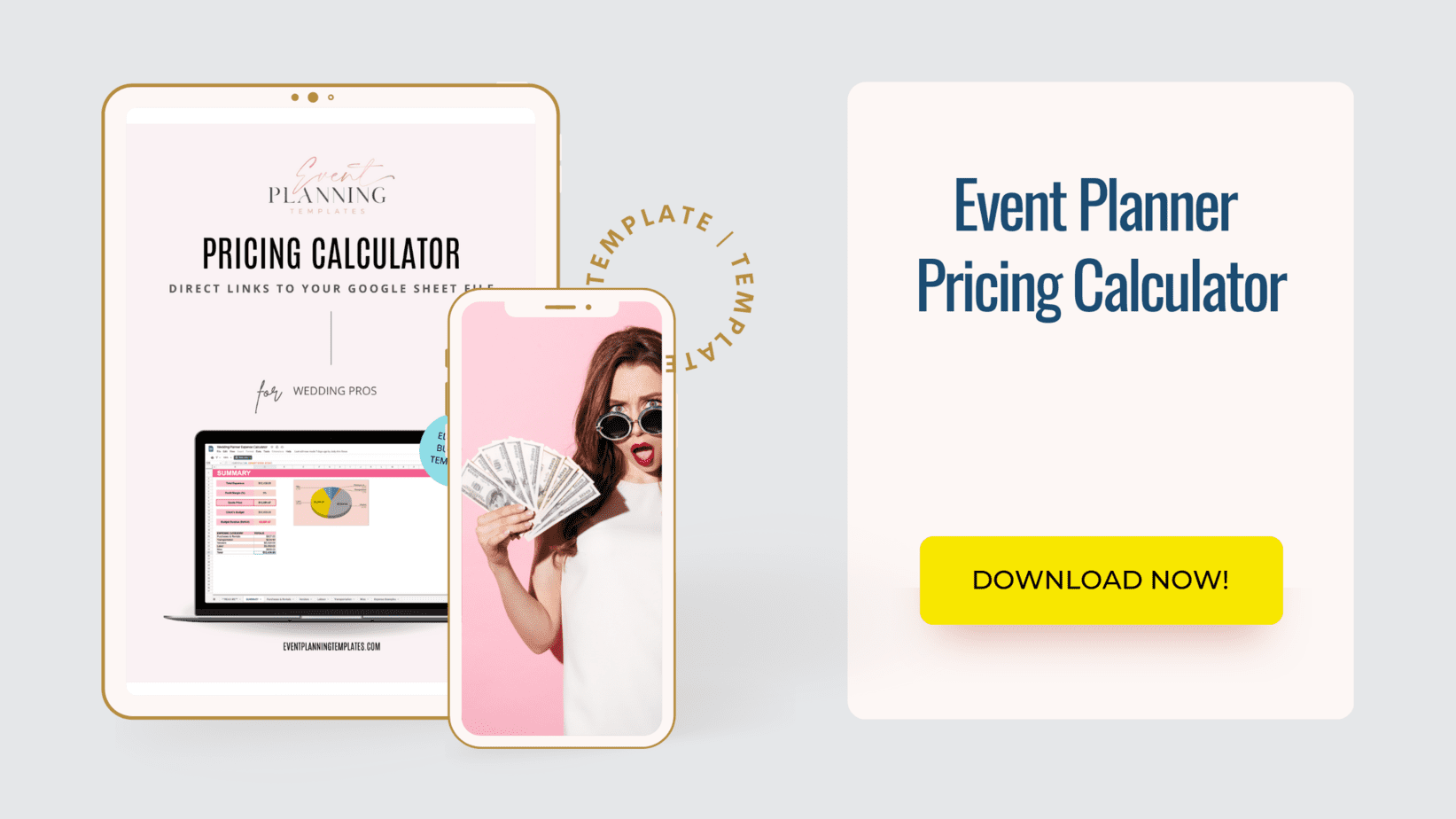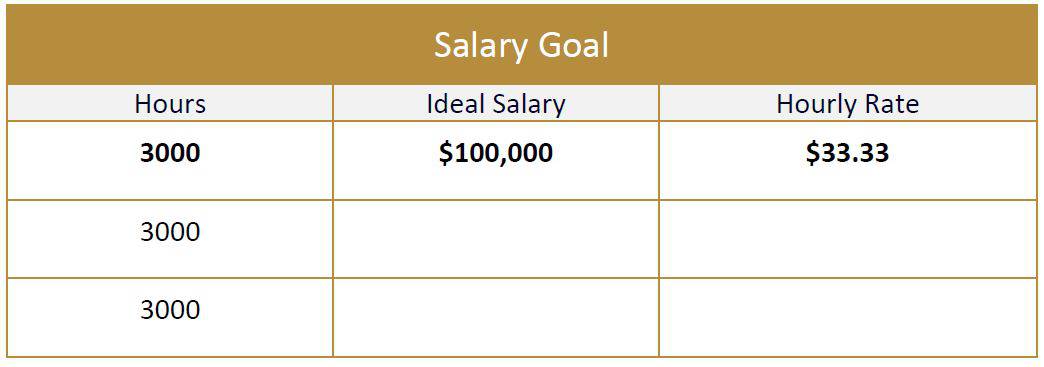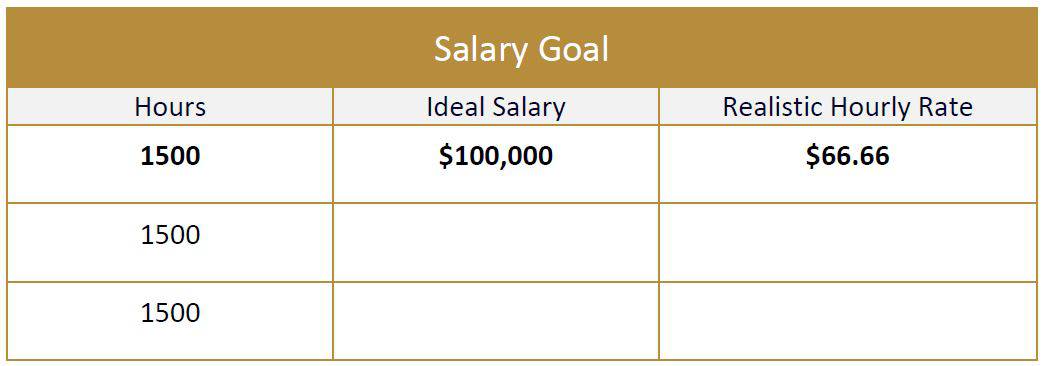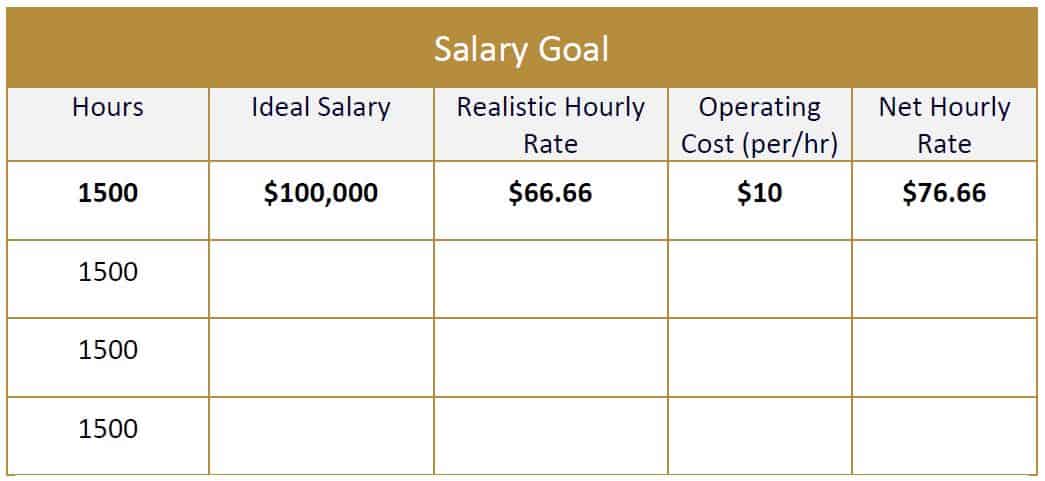Let me ask you a few questions about charging for your event planning service:
Do you ever wonder how much to charge clients for your event planning service?
Have you ever felt like you might be charging more/less per hour to plan an event?
How often do you say “yes” to working with a low paying client and then regret it later?

Pricing can be a complicated thing to figure out for event planners. But it doesn’t have to be. What you charge will vary according to the event, the demand for your service, and your location (to name a few). My goal is to help event planners build, launch, and grow their businesses. I’m here to show you exactly how to win the pricing game and finally be able to charge your clients with confidence.
I’ll be showing you step-by-step how to determine an hourly rate for your event planning service.
The most important thing to know when pricing, is that charging for your event planning service is not magic, it’s math.
Also included is a handy worksheet that will help you to develop a baseline for creating other pricing structures such as flat rate pricing and event planning packages. Here are the exact steps to get started:
STEP 1: Research what your Competitors are Charging
Just like you price match when shopping, event planning customers do the same. What your competitors are charging will affect how much customers are willing to pay for your services. The idea here is to not copy your competitor’s pricing but to use this information to inform your own pricing calculation. This is one of the best ways to gauge where your fees should start.
How can you confidently say you are the most reasonably priced or the best value if you are not aware of what you’re up against? Here’s what you’ll need to do.
Before you settle on a price for your services, call around and find out what other event planners in your area are charging.
According to industry expert Patty Sachs, event planners make anywhere from $12 to $75 per hour, plus vendor commissions.
Once you have done your research list the three (3) most common prices quoted by event planners in your area.

Now that you have your three (3) comparison prices, sit with these prices for a moment and try to determine where your price should fall. Think about the ranges above, your skills, experience, and knowledge, and pick a
price.
You read correctly, just select a number that would work for you – I promise you there is a method to this madness.
Remember to never price your services lower than the range above. It might seem like a good idea if you are new to the industry; however, it takes just as much effort to plan a wedding at $25 per hour as it does at $75 per hour.

STEP 2: Determine Your Ideal Salary
Even if you don’t end up using an hourly pricing structure, you should always be able to easily answer the question:
“How much is an hour of your time worth?”
To determine this, start by asking yourself how much you want (or need) to make each year. From there, you can easily determine what your ideal hourly rate should be.
The average event planner works 50-60 hours per week. That is equal to approximately 3000 hours in a work year, assuming a two (2) week vacation.
(50 weeks x 60 hours per week = 3000 hours)
To determine your minimum hourly rate, take your ideal annual salary and divide by 3000. For example, if you want to earn $75,000 a year, you should charge a minimum of $25/hour. This would be the lowest price you could charge.
($75,000 / 3000 = $25)
Go ahead and try it out on your own. Take the ideal salary number in the second column below and divide it by the number of hours in the first column to calculate your hourly rate. Try a few different options to see where your idealy hourly rate should fall.
If you’re a Day of Coordinator, this is also a great way to determine your Day of Coordinator rate. If you only charge for your on-site time at the event rather than a package, this is ideal.


STEP 3: Determine your Realistic Hourly Rate
Now that we have calculated the lowest satisfactory rate that sufficiently values your time (Step 2), let’s take it up a notch.
If you are a single-person operation it will be almost impossible to work on events for 60 hours a week, 10 hours per day (assuming 1 day off during a 7 day work week). In fact, most entrepreneurs find that only about 50% of their time is actually billable (at 10 hours that is equal to 5 hours per day), while the other 50% is spent looking for new business, managing clients and taking care of the administration of the business. That means if you still wish to make $75,000/year, you will need to increase your rate, you should be charging at least $50/hour.
(3000 x 50%) = 1500 x ($50) = $75,000
Go ahead and try it out on your own. Take the ideal salary number in the second column below and divide it by the number of hours in the first column to calculate your realistic hourly rate. Try out a few ideal salary options to get a better idea of where you would like to be.
QUICK NOTE: You can also compare this to the average event planner salary in your area to see where you land.

You now have the formula needed to determine your rate and obtain your ideal salary, or set your ideal work hours and use this to determine your best rate. Now let’s adjust for costs.

STEP 4: Add in your Costs
Once you have determined how much you want to make each year, you will have to do a little math and calculate your operating costs. Take a moment to think about all of the costs that you will have to cover, from indirect costs such as your Internet, website operating cost, software or programs, electricity and phone, to
direct costs such as office supplies and event insurance (Grab this info from your business plan!). Once you have broken down all of the costs, remember to add those to your final rates. For example: Let’s say it costs you a total of $10 per/hr to operate your event planning business.

You will need to add this to your realistic hourly rate to determine your NET HOURLY RATE.
And that’s the Math.
With this formula, you can calculate the best price for your event planning service. This will help you to determine without a doubt what you should be charging clients.
BEFORE YOU GO: Charging for your Event Planning Service
Remember the “random” number you selected in STEP 1 after reviewing your competitor’s pricing?
How does this compare to your Net Hourly Rate from STEP 4 above? If it is fairly close your pricing guessing game is over!
If the price you believe you should be charging is significantly lower than your Net Hourly Rate, I would like
you to explore why.
- Are rates in your area lower than in other cities?
- Are you lacking the skills or knowledge that other event planners in your area possess?
- What additional value can you provide to clients that could eliminate this gap?
Time to get your thinking cap on!




Pingback: 4 Tips for Booking your First Paying Client without a Portfolio - EVENT PLANNING CERTIFICATE
Pingback: How Much Do Event Planners Charge? - EVENT PLANNING CERTIFICATE
Pingback: 5 Items to Include in Your Event Planning Proposal – Event Planning Templates
Pingback: 3 Reasons why Low Pricing Doesn't Work - EVENT PLANNING CERTIFICATE
Pingback: 10 Blog Posts Every Event Planner Should Read - Event Planning Templates